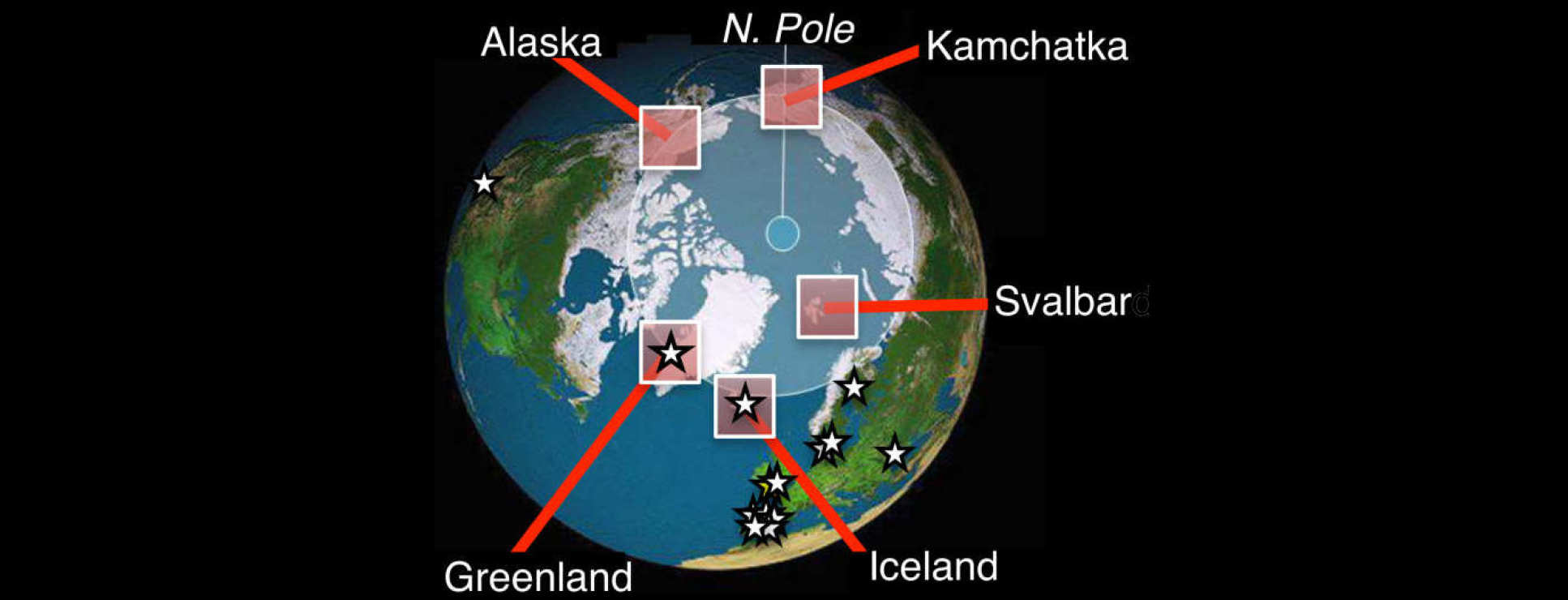Researchers from Imperial College London are leading a large international and interdisciplinary project using a novel multi-scaled approach. The researchers involved in the £3.7M NERC grant are investigating the impacts of global warming in dozens of streams close to the Arctic, hundreds of artificial experimental pond “mesocosms”, and thousands of miniature laboratory “microcosms”. Large-scale projects of this magnitude are rarely feasible due to logistic and funding limitations, so it provides us with a unique opportunity to advance the field.
Geothermal streams at varying temperatures occur worldwide and they can be harnessed as powerful ‘natural laboratories’ to test the effects of warming on whole natural ecosystems. Sixty streams have been selected over five high-latitude locations where warming is predicted to be especially marked within the next century: Iceland, Greenland, Alaska, Russia, and Svalbard. The streams have a natural temperature range between 2 and 50°C. There is little physical or chemical variation between streams in each location, allowing us to isolate the effects of temperature. The research is focused on understanding how long-term warming affects freshwaters, from genes to whole ecosystems. The project will quantify how warming alters the complex networks of interacting species – from microbes to invertebrates and fishes – as well as carbon and nitrogen cycling. In addition we will employ Next Generation Sequencing – or ecological “DNA fingerprinting” - to quantify microbial responses and to untangle the links between bacterial communities (i.e. who they are) and ecosystem functioning (i.e. what they are doing).

Map:
* Stars are the locations of the experimental mesocosm facilities
* Squares are locations of the field sites
There is abundant evidence of the effects of climate change on individual species, yet research on networks of interacting species and entire ecosystems is lacking, and we need to understand these higher-level impacts if we are to predict and cope with future change.
Questions that we hope to answer
- How do the processes in the carbon and nitrogen cycle respond to temperature?
- What are the feedback loops within the carbon and nitrogen cycle in relation to climate change?
- What factors determine the response of microbial communities to warming?
- How exactly do microbial communities adapt to temperature changes e.g. are diverse communities better for maintaining processes, do they switch out their key players, or do we see evolution of particular species to new environmental conditions?
- Can we predict and model the outcome of climate change for freshwater ecosystems across the globe?
- What are the long-term response of community biodiversity and networks of interacting species to warming?
- What are the links between the responses of microbial, plant and invertebrate communities and ecosystem function?
Error: Please enter a valid Onezoom URL.
Contact us
If you have any questions about the project, or would like to find out more, please email Dr Michelle Jackson
Collaborate with us
We welcome other researchers to collaborate with us on the mesocosm project at Silwood Park through the AQUACOSM network.
See here : AQUACOSM